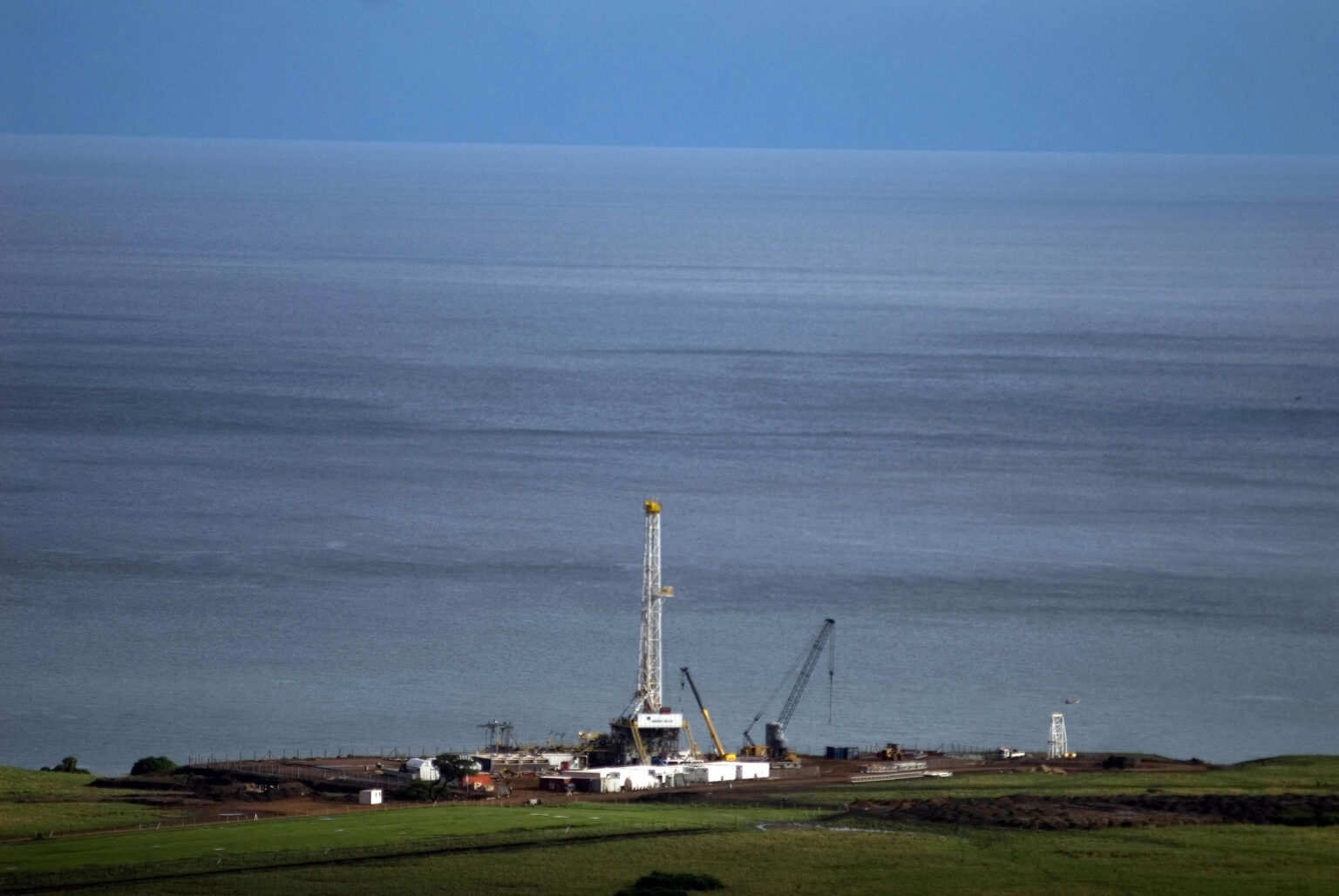- Locals around Lake Albert alarmed by oil companies neglecting the essential rituals needed to preserve these places’ sanctity.
- TotalEnergies is encountering legal challenges and criticism for its environmental impact, including contributions to climate change.
- A key part of this effort is the $3.5 billion East African Crude Oil Pipeline. While it could bring economic gains and regional energy integration, it has climate and environmental concerns.
In a region where oil activities are expanding into sacred natural sites, a small Ugandan community is grappling with the encroachment on their spiritual spaces. According to AP, Alex Wakitinti, the chief custodian of these revered sites near Lake Albert, is concerned about the disregard shown by oil companies, including French giant TotalEnergies, for the significance of these locations. These sites are vital to the cultural and spiritual practices of the Bagungu community in the remote Buliisa district, adjacent to the Congo border.
Wakitinti emphasizes that oil companies are neglecting the role of custodians and the essential rituals required to maintain the sanctity of these places. Disturbing these sites without adhering to necessary rituals can lead to bad luck and negative consequences according to their spiritual beliefs.
Balancing spiritual beliefs and economic interests
This concern extends beyond the spiritual realm. The oil development is impacting the community’s livelihoods and environment. For instance, according to AP farmer William Byabagambi notes that the oil infrastructure is displacing people. This is leading to fewer communal offerings to spirits due to less community members being present.
Uganda possesses substantial oil reserves, and the government views oil earnings as a potential means to alleviate poverty. However, this development clashes with the cultural and spiritual practices of communities like the Bagungu. The expansion of oil infrastructure has disrupted the integrity of certain sacred sites, causing outrage and concern among community members.
TotalEnergies, a major player in Uganda’s oil project, is encountering legal challenges and criticism for its environmental impact, including contributions to climate change. Despite legal actions and advocacy, the company’s operations continue. Meanwhile, Bagungu activists strive to protect their sacred sites, with some efforts facing political obstacles.
This clash between economic development and cultural preservation underscores the complex challenges posed by oil exploration in culturally rich and ecologically sensitive regions. As the oil industry progresses in Uganda, finding a balance between economic growth and safeguarding indigenous cultural and spiritual practices remains a contentious issue.
TotalEnergies’ Uganda’s Tilenga oil project
The drilling of Tilenga’s wells began in July 2023, with production set to commence in 2025. A total of 420 wells are slated for drilling in the Tilenga project. According to a TotalEnergies, the project is projected to reach its peak in 2028, generating nearly 190,000 barrels per day of crude oil and condensate.
An integral aspect of this endeavour is the $3.5 billion East African Crude Oil Pipeline (EACOP). This pipeline will facilitate the transportation of oil from the Tilenga refinery to the Port of Tanga in Tanzania for export, connecting Uganda’s oil resources to the global market.
The Ambitious East Africa Crude Oil Pipeline
Proposed jointly by TotalEnergies and CNOOC, the extensive East Africa Crude Oil Pipeline, stretching across 1,443 kilometres, is slated to connect Uganda to the Indian Ocean port of Tanga in Tanzania. This pipeline, touted as the world’s longest heated oil conduit, carries the potential to transform the energy landscape of the region. Expected to be operational by 2025, the pipeline is a critical component of Uganda’s aspirations for economic growth and energy self-sufficiency.
While the ambitious pipeline project promises economic benefits and regional energy integration, it has garnered the attention of climate activists and environmental advocates. Concerns have been raised regarding the potential impact on local communities and the environment, particularly in sensitive ecosystems.
Climate activists have emphasized the pipeline’s potential consequences on the delicate balance between economic development and environmental preservation. The EU Parliament, in particular, is urging vigilance and exertion of “maximum pressure” to ensure environmental protection and mitigate potential adverse effects on protected areas and local communities.
Uganda’s President expressed frustration at the EU Parliament’s resolution, highlighting a divergence of views on the project’s implications. While climate activists and environmentalists underscore potential risks and call for stringent safeguards, Ugandan authorities view the pipeline as a catalyst for economic development and poverty alleviation. The optimism centres around the transformative impact of oil wealth in uplifting millions from economic hardship.
Complexities of compensation and displacement
One of the central issues of contention pertains to the potential displacement of 100,000 individuals in the project’s vicinity. The EU Parliament highlighted concerns about inadequate compensation and the potential disruption of livelihoods. Striking a balance between economic advancement and safeguarding local communities’ interests remains a challenge.
The Oil projects in Uganda represent a pivotal juncture where developmental aspirations and environmental stewardship intersect. Navigating this complex landscape requires a delicate balancing act, acknowledging both the potential for economic growth and the imperative to preserve ecological integrity. As the projects inch closer to completion, stakeholders will continue to grapple with these challenges, seeking an equilibrium that allows for progress while safeguarding the environment and local communities.
